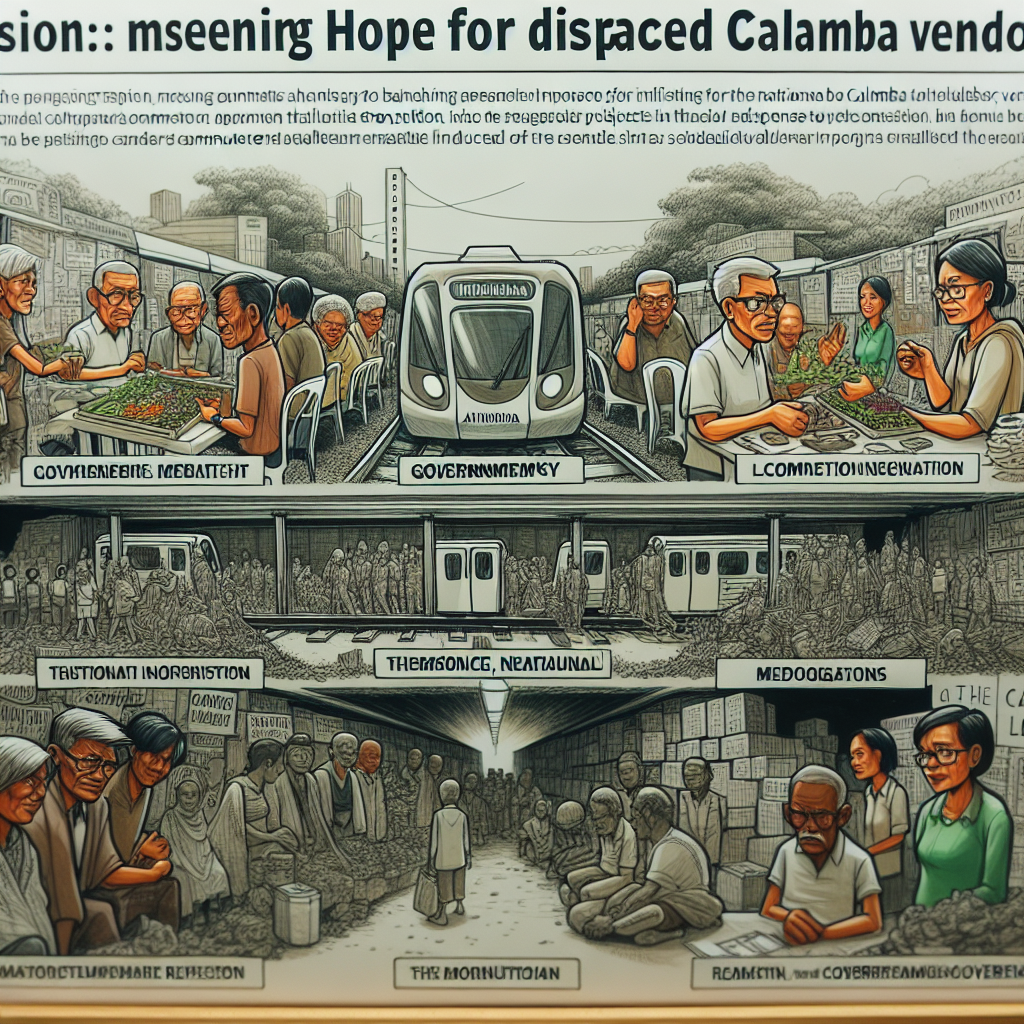By Louis ‘Barok‘ C. Biraogo
In a scene that could rival the tension and resolution of a courtroom drama, the plight of Calamba City’s fish vendors teetered on the edge of despair, only to be pulled back by an extraordinary display of governance and empathy. As the privately owned market that houses their livelihoods faces demolition to make way for the sprawling North-South Commuter Railway project, a glimmer of hope emerged, thanks to decisive intervention from local and national leaders.
The fish vendors, initially facing a grim future, found an unexpected ally in City Mayor Rosseler Rizal. In a meticulously brokered mediation, the vendors were presented with lifelines: the option to transfer to the city-owned Mercado de Calamba with fees waived, move to the new Morales Trade Center, or remain at the old Calamba Trade Center until its closure in December. This gesture of goodwill, combined with the urgency driven by their complaints to Senator Raffy Tulfo, underscores a remarkable responsiveness from the city’s administration.
At the heart of this unfolding drama stands Michael Ted Macapagal, Chairman of the Philippine National Railways. In a statement that encapsulates both the gravity and the humanity of the situation, Macapagal asserted,
“We must strike a careful balance when handling the displacement of individuals due to our railway projects. Decisiveness is crucial, but so is empathy. It’s imperative to provide alternative means of livelihood for those affected. Above all, we must clearly communicate the reasons behind our actions to the people involved.”
This is not just rhetoric; it is a manifesto of compassionate governance. The creation of a Resettlement Action Plan Implementation and Management Committee, a collaborative effort between Mayor Rizal and Department of Transportation Undersecretary for Railways Cesar Chavez, signals a structured and humane approach to a challenging transition. Their memorandum of agreement, signed in September 2023, laid the groundwork for the careful orchestration of resettlement, ensuring that the railway project—connecting Clark, Pampanga, to Calamba City—proceeds without leaving devastated communities in its wake.
City Administrator Johnny Pamuspusan, echoing this sentiment, reassured the vendors that their voices would not be lost in the bureaucratic shuffle. “We are willing and ready to listen to the people’s pleas. They can be assured of the assistance of this administration of Mayor Rizal,” he affirmed.
The vendors’ fears were not unfounded. Rumors of unaccounted rent payments to a mysterious collector without receipts added to their anxieties. Yet, the swiftness and transparency of the city’s response, spearheaded by figures like Macapagal and Rizal, have begun to restore faith in the system.
As the clock ticks down to the December deadline, the unfolding narrative remains fraught with tension. Will the promises of relocation and support materialize into tangible outcomes? Can the vendors rebuild their lives amidst the roar of progress and construction? The stakes are high, but the leadership displayed so far suggests a commitment to ensuring that development does not trample the very people it aims to serve.
In the end, the true measure of this project’s success will not be in the length of railway tracks laid but in the resilience and restored livelihoods of those displaced. This episode, filled with suspense and hope, serves as a powerful testament to what can be achieved when decisiveness is matched with empathy, and promises are met with action.

- Andres Heralds DoJ’s Transformative Justice

- Sailing to New Horizons: PEZA Sets Ambitious PHP250-B Approval Target for 2024

- Panga’s Bold Vision: The Paradigm Shift of Iwahig Mega Economic Zone

- Panga’s Pragmatic Approach to Sino-Philippine Investments

- The Shadow Over Manila

- Shadow of the Red Notice: Remulla hunts down Teves

- Frozen Enigma: NBI Bacolod’s Tussle with Darkness

- Quiboloy’s Supreme Court Shenanigans: A Pathetic Attempt to Dodge Justice









Leave a comment